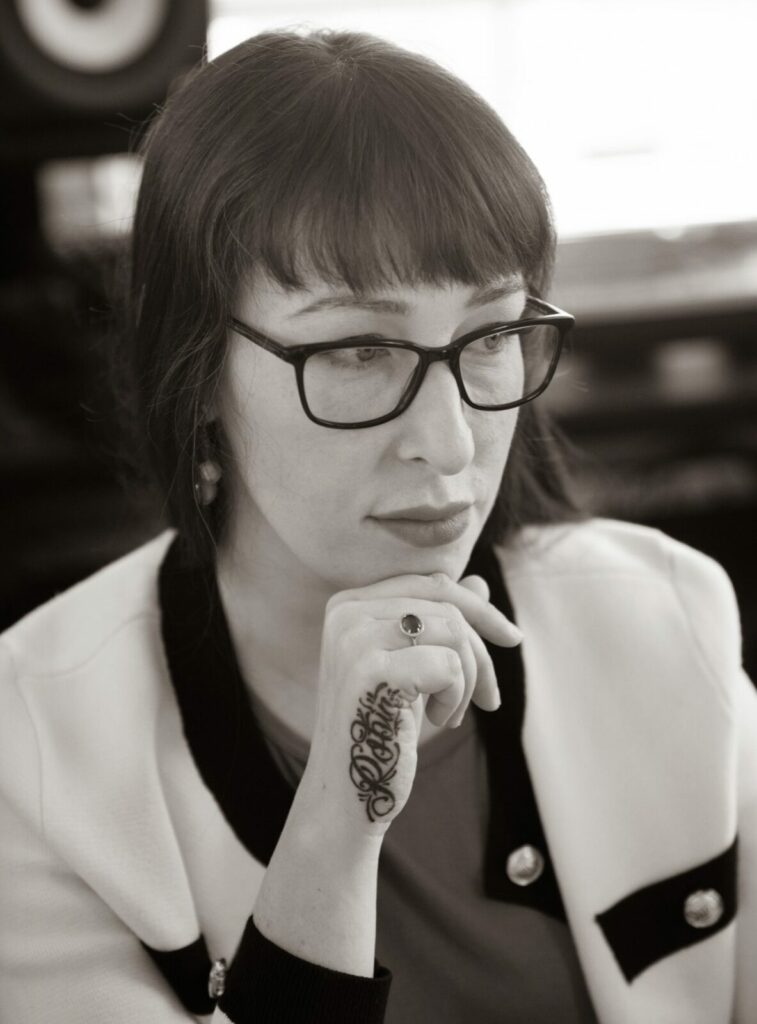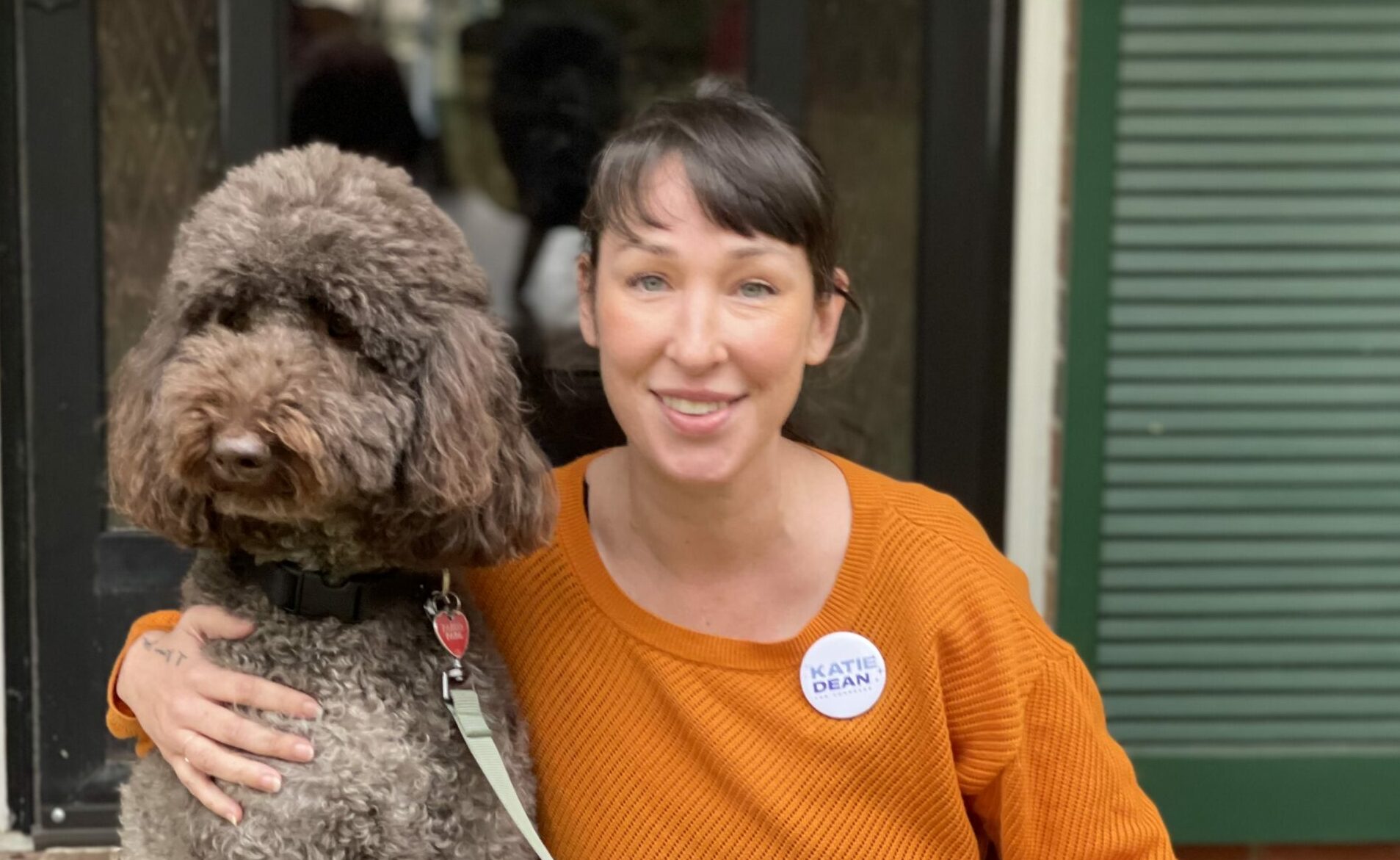
Crystal Salinas MacKinnon, who is finishing up her M.A. Degree in Peace and Conflict Studies online this year, has leveraged her PCS studies to help her develop a diverse portfolio of community-engaged activities in and around Asheville, NC, where she resides.
In this conversation, Crystal shares insights about being a community practitioner, her work as a “peace journalist,” and her push for promoting “a radical new paradigm of simply telling the truth.” She also reflects on why she chose to complete an M.A. in Peace and Conflict Studies and on what being a community practitioner means to her.
DOUGLAS P. FRY:
Crystal, how did you find your way to Peace and Conflict Studies?
CRYSTAL SALINAS MACKINNON:
High school had led me to believe that I had no academic abilities. I did find an ability for drawing. For three years I attended the School of the Art Institute of Chicago, but after a while I really didn’t see the point of continuing. I still thought I wasn’t very smart, and I worked at a number of administrative positions in Chicago. My last job before enrolling at UNCG involved listening to audio recordings of calls by Wall Street executives in order to help prepare public releases for their companies.
This turned out to be a pivotal point for me. As I listened to all these conversations for my job, the way they talked about human life was so revolting. As the $15 minimum wage was going to take effect in Seattle, I heard a CFO of a major chain explain all the loopholes they would use and ways to replace workers with machines. The plan was to put in machines, fire people, and make the remaining employees work harder so that the payroll bottom line would not move a penny upwards.
I hit a wall. I said to myself, “I am not going to spend one more day of my life making other people money. I want out.”
So, I enrolled at UNCG and graduated with a B.A. in Philosophy and a minor in Sociology.
By the way, I found out that my assessment of my academic ability from high school had been incorrect!
In thinking about what to study next, I wanted to set myself up to be a community practitioner. I considered public policy, public administration, political science, and sociology. What I realized is that the Peace and Conflict Studies M.A. program incorporates elements of all of these “soft sciences,” I decided PCS was the way to go.
Once you start to get involved in the community, you start to build relationships. I think relationship building is one of the fundamental cornerstones of everything I do. With PCS, you can be as micro or as macro as you want. In every class, you also can be theoretical and academic or be someone who is gearing more toward practical application. I use the theory to inform practical applications.
DPF:
So how have you merged what you’ve learned in your Peace and Conflict Studies classes with practical applications in your community?
CSM:
Well first, in the classes much of what we cover is tied to real world situations, as opposed to simply theory. If you want to be a practitioner in your community, it can be difficult to do that. How do I leverage these skills to not only satisfy my ethical obligation to resolve important conflicts, but also, like, how do I literally do it? Where do I belong?
Whenever I had a choice in the PCS Program about what to work on, I made it about Asheville. So, over time, a body of work – a depth of understanding – came into focus on the local situation. What I really want to do is “harm reduction” at the more micro level, in the community. This leads into my “peace journalism” activities and “the radical new paradigm of simply telling the truth.”
DPF:
During the summer of 2020, there were loud voices calling to defund the police in Asheville and around the country. I recall that one of your local projects involved trying to get at what the citizens of Asheville truly thought of the defunding issue and about the police more generally. How did you approach this topic?
CSM:
In the summer of 2020, there were loud calls to defund the police. However, at first there was no real data on what people thought. I realized that some people simply assumed that Black people supported it. Was this really the case? And what were the local attitudes in Asheville? I did a scientific survey to get some data from people located at 100 random points within a six-mile radius of the city center. Since it was random, sampling bias by race, class, etc. did not intervene.
I then turned the random location points into street addresses and hit the streets to ask people two questions: “Do you support defunding the police?” “Do you support law enforcement?”
I got a good response rate of 88/100. Eighty-six percent of the respondents said “no” to defunding and 48 percent said they were not satisfied with law enforcement.
I concluded from these results that a vocal minority of people were shouting loudly to defund the police, but most citizens from Asheville across neighborhoods, socio-economic groups, race, and so on, did not agree. This brings us back to the reality of how to implement police reform. An overall lesson is that you cannot necessarily gauge what is going on in the community based on anecdotes, social media, or who is protesting what.
DPF:
You’ve worked as an intern and then a volunteer at community radio? How did that work relate to peace journalism and what you dub “the radical new paradigm of simply telling the truth”?
CSM:
It occurred to me that because most people only receive information filtered through corporate media, and of course corporate media is beholden to advertisers, shareholders, et cetera, that a nonprofit media outlet could serve as third-party oversight to the mainstream media. Over the 10-plus interviews that I conducted, most of which were of political candidates, I made a very concerted effort to show no bias in my line of questioning or in my reaction to the interviewee.
I found this model to actually be quite powerful because it served to isolate nothing but the words of the candidate with no spin. I was truly doing nothing more than trying to disseminate information, regardless of my personal leanings. I’m sure we would all like to assume that most journalists trade in the truth, but we know this is not the case. Biases can easily corrupt the truth, and I sought to buck that trend.
DPF:
A predictable question to ask you would be what sort of work do you envision doing upon graduation from the Peace and Conflict Studies M.A. Program. However, I know that you already have been offered, and accepted, a very interesting job working for one of the candidates running for U.S. Congress. I gather you are excited?
CSM:
I feel I am in my element. I truly believe in her. The job suits me – I like talking with people, following local news. I also feel really appreciated and respected as an “expert” on issues pertaining to the Asheville area and for my knowledge of human behavior, given my studies and experience.
DPF:
In this context, we can’t appear to endorse a particular candidate, but I am curious what appeals to you about your candidate?
CSM:
First and foremost, she is authentic. What you see is what you get. Many candidates are scripted. She is not. She has opinions and speaks her mind. I don’t write material for her, but we do craft our campaign messaging collaboratively as a team. This lines up with “the radical new paradigm of simply telling the truth” – in a political context.
Many candidates change their stances disingenuously based on what they think people want to hear, and a savvy constituent can sense that. I’m fascinated to see how powerful true authenticity can be in this arena.
Second, of course, there is policy alignment. Third, I like her demographically as someone who grew up on a farm and then went on to get a professional degree in environmental engineering. I feel she “fits” the district demographically.
Basically, I like the whole package. And I like being part of her campaign and what it stands for.
DPF:
Well, I wish you and your candidate the best of luck with the campaign. Thank you for doing this interview and sharing your thoughts.
